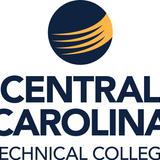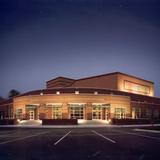- The mission of Florence Darlington Technical College is to provide comprehensive technical education, workforce development, and educational services to students, business & industry, and the markets it serves. Through instructional programs, business & industry partnerships, and community involvement, the College will play a major role in the economic development and quality of life of its constituents. The educational experience at Florence-Darlington Technical College will have an international perspective, which will enhance the student's marketability in today's global economy.
School Highlights
Florence-Darlington Technical College serves 4,040 students (33% of students are full-time).
The college's student-teacher ratio of 14:1 is lower than the state community college average of 18:1.
Minority enrollment is 60% of the student body (majority Black), which is more than the state average of 48%.
Quick Facts (2026)
- Enrollment: 4,040 students
- In-state tuition: $4,198
- Out-state tuition: $6,022
- Student-teacher ratio: 14:1
- Minority enrollment: 60%
- Source: Integrated Postsecondary Education Data System (IPEDS)
Top Rankings
Florence-Darlington Technical College ranks among the top 20% of public schools in South Carolina for:
Category
Attribute
Affordability
School Overview
The teacher population of 280 teachers has stayed relatively flat over five years.
Florence-Darlington Technical College
(SC) Community College Avg.
Carnegie Classification
Associate's Colleges: High Career & Technical-High Traditional
Associate's Colleges: High Vocational & Technical-High Traditional
Institution Level
At least 2 but less than 4 years
At least 2 but less than 4 years
Institution Control
Public
Public
Total Faculty
280 staff
177 staff
School Calendar
Student Body
The student population of Florence-Darlington Technical College has grown by 21% over five years.
The student-teacher ratio of 14:1 has decreased from 37:1 over five years.
The Florence-Darlington Technical College diversity score of 0.65 is more than the state average of 0.63. The school's diversity has stayed relatively flat over five years.
Total Enrollment
4,040 students
1,971 students
Student-Teacher Ratio
14:1
18:1
# Full-Time Students
1,331 students
622 students
# Part-Time Students
2,709 students
1,349 students
# Enrollment Undergraduate
404 students
279 students
# Full-Time Undergraduate Students
1,331 students
605 students
# Full-Time Graduate Students
n/a
8 students
# Part-Time Undergraduate Students
2,709 students
1,965 students
# Part-Time Graduate Students
n/a
32 students
Total Dormitory Capacity
n/a
260 students
% American Indian/Alaskan
1%
n/a
% Asian
1%
2%
% Hispanic
1%
9%
% Black
42%
29%
% White
40%
52%
% Hawaiian
n/a
n/a
% Two or more races
2%
4%
% Non Resident races
n/a
n/a
% Unknown races
12%
4%
Diversity Score
0.65
0.63
College Completion Rate (Students who graduate in less than 4 years)
19%
26%
College Completion Rate (Students who graduate in 4 years or more than 4 years)
n/a
17%
Average Graduate Earnings (10 Years)
$28,600
$28,800
Tuition and Acceptance Rate
The public in-state tuition of $4,198 is less than the state average of $5,692. The in-state tuition has declined by 16% over four years.
The public out-state tuition of $6,022 is less than the state average of $10,568. The out-state tuition has declined by 12% over four years.
In-State Tuition Fees
$4,198
$5,692
Out-State Tuition Fees
$6,022
$10,568
Tuition Notes
5133.00 (Full-time,
% Students Receiving Some Financial Aid
93%
93%
Median Debt for Graduates
$12,167
$11,729
Median Debt for Dropouts
$6,500
$5,500
Acceptance Rate
n/a
88%
SAT Reading
n/a
430
SAT Math
n/a
458
SAT Writing
n/a
413
ACT Composite
n/a
18
ACT English
n/a
17
ACT Math
n/a
18
ACT Writing
n/a
6
Source: 2024 (or latest year available) Integrated Postsecondary Education Data System (IPEDS)
School Notes
- The Florence-Darlington Technical Education Center was established in 1963 and presently serves Florence, Darlington, and Marion counties. The College's initial enrollment of 250 students now exceeds 5,000 curriculum students. Its original campus of less than 10 acres has expanded to nearly 240 acres with a modern complex of eight major buildings totaling nearly 350,000 square feet. The College is in the midst of planning and developing another 325,000 square feet of instructional space entirely devoted to the advanced technology required in today's sophisticated manufacturing environment. The College operates sites in Hartsville, Lake City, and Mullins. The College also operates a large health sciences complex in downtown Florence entirely devoted to careers in the health arena. Florence-Darlington's main campus is located between the cities of Florence and Darlington on U.S. Hwy. 52 and in close proximity to Interstates 95 and 20. The 100-acre campus has eight major buildings. However, plans are in place for the construction of eight technical institutes on a recently purchased 146-acre tract behind the current campus. FDTC continues to offer affordable, quality education in more than 60 fields of study. Acknowledged as the fastest growing institution of higher education in South Carolina during the late 1990s, FDTC's curriculum enrollment is now approaching 5,500 students and its Continuing Education Division enjoys about 30,000 registrations annually. The primary accreditor of Florence-Darlington Technical College is the Commission on Colleges of the Southern Association of Colleges and Schools.
Frequently Asked Questions
How much does Florence-Darlington Technical College cost?
Florence-Darlington Technical College's tuition is approximately $4,198 for In-State students and $6,022 for Out-State students.
What is Florence-Darlington Technical College's ranking?
Florence-Darlington Technical College ranks among the top 20% of community college in South Carolina for: Least expensive tuition.
Recent Articles

Community College Policies and Financial Aid Guide 2026
A 2026 guide to community college policies and financial aid, including FAFSA updates, state aid, tuition rules, and smart planning tips.

Get Better Grades in Community College by Being Social (2026 Update)
Learn how being social in community college boosts grades, retention, and career success. Updated 2026 strategies for academic achievement.

Navigating Community College as an Adult Learner in 2026
A practical 2026 guide for adults returning to community college, covering admissions, financial aid, career planning, and flexible learning options.











